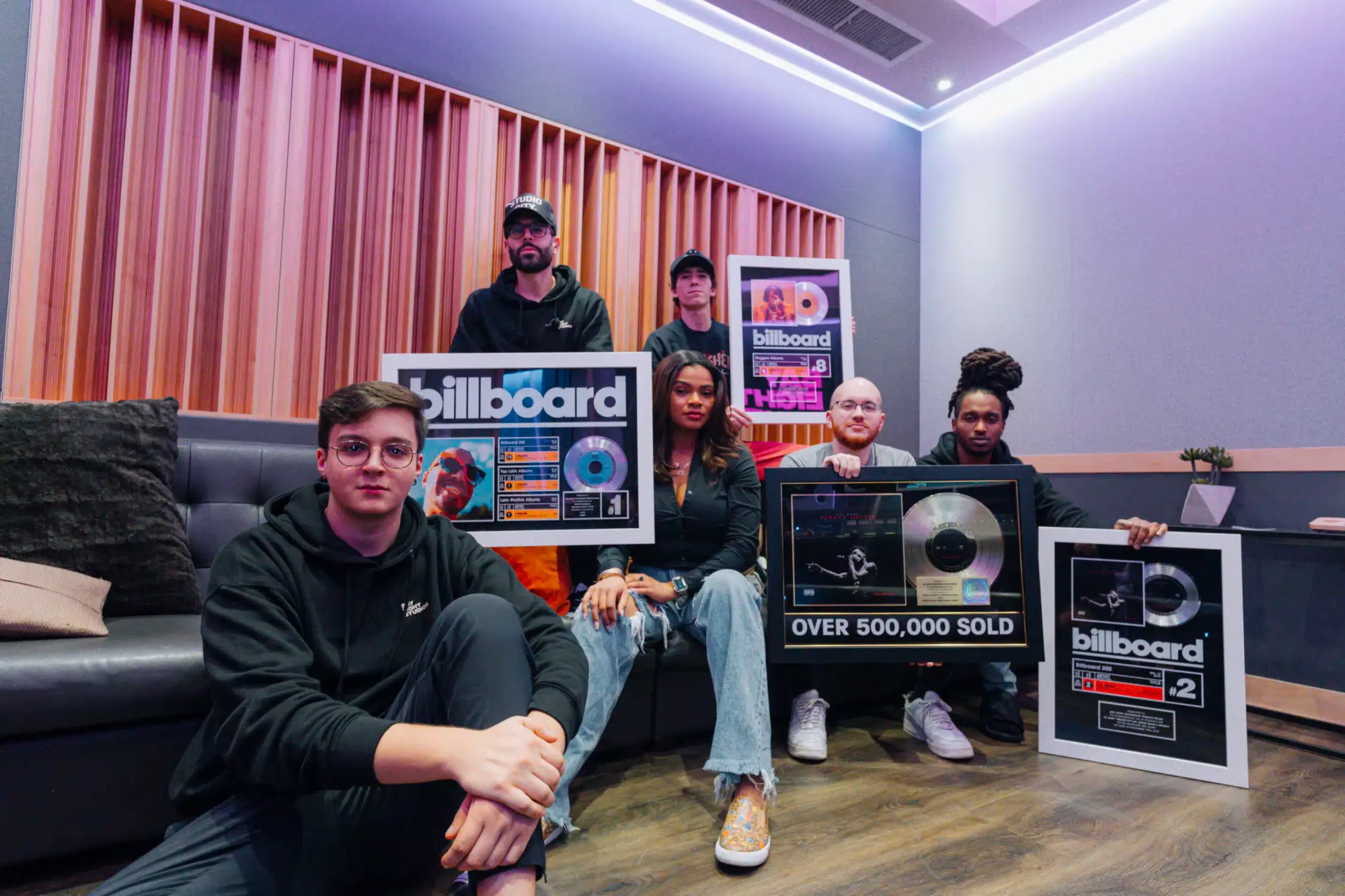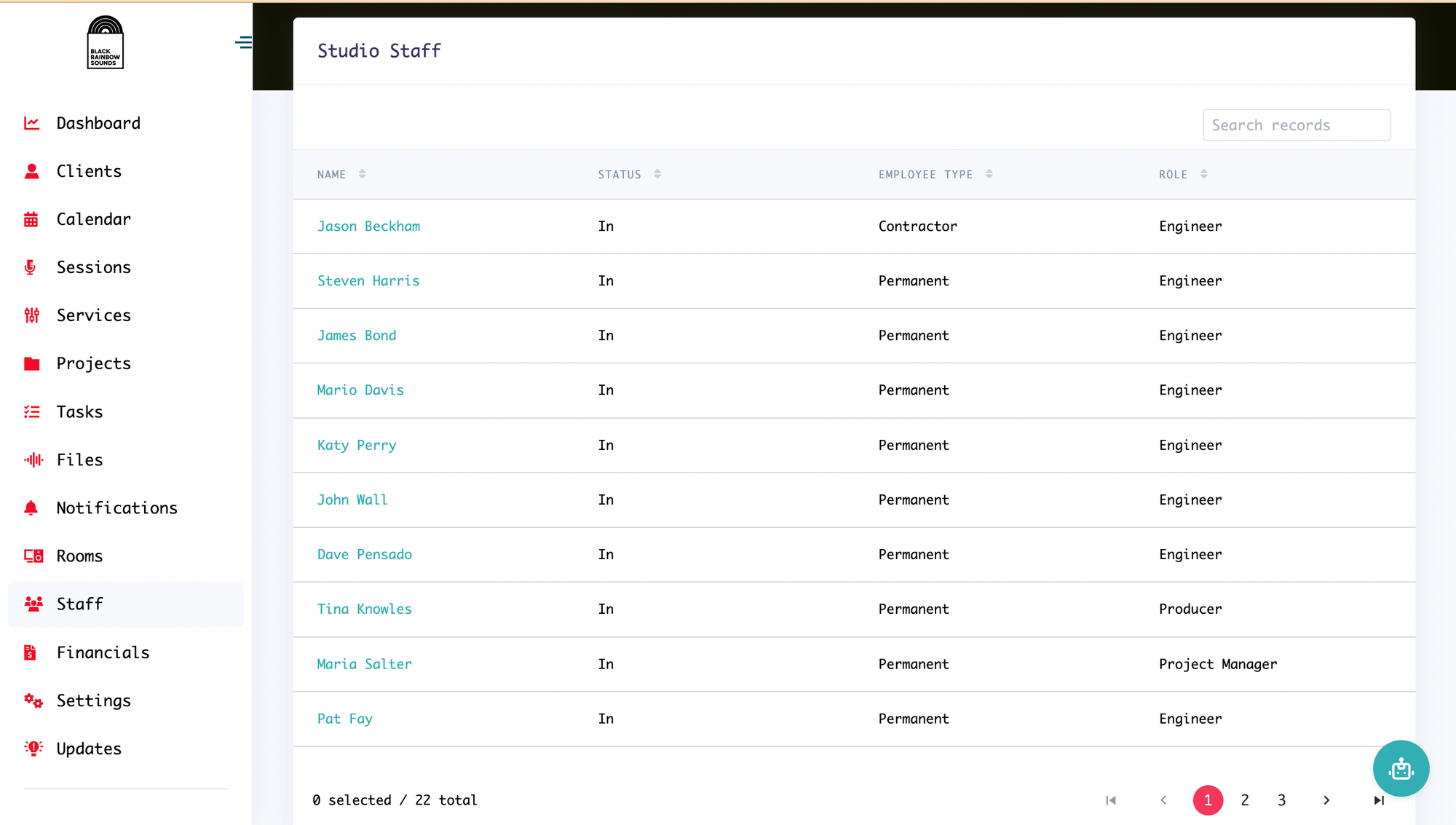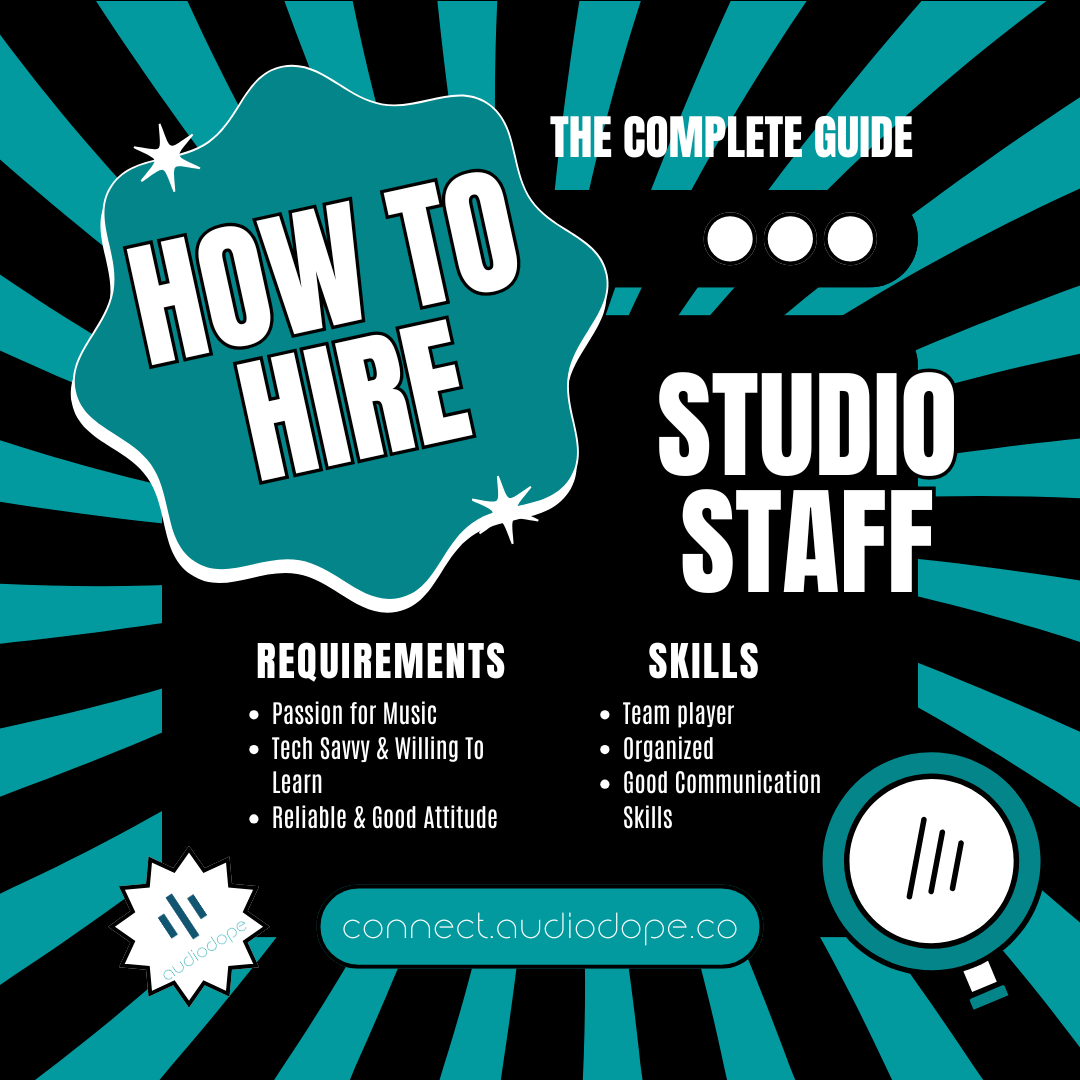How to Hire for Your Recording Studio: The Ultimate Guide

As we been discussing on our coverage of Staff Management, we have harped on the importance of having a well skilled team to keep your studio aflot.
Finding the right individuals to join your team can be a daunting task, especially in the highly competitive music industry. But fear not, because we've got you covered. Our expert advice will help you streamline the hiring process, ensuring that you make informed decisions and build a cohesive team that will elevate your studio's success.
The importance of hiring the right team for your recording studio
When it comes to running a recording studio, the importance of hiring the right team cannot be overstated. Your team members are the backbone of your studio, and their skills and dedication can make or break your success. Hiring the right individuals who align with your studio's vision and values is crucial for creating a positive and productive work environment.
One of the main reasons why hiring the right team is so important is because the music industry relies heavily on collaboration. Whether it's working with artists, producers, or other industry professionals, your team members need to be able to work well with others and contribute their unique skills to the creative process. A cohesive team will not only produce better results, but they will also foster a positive reputation for your studio, attracting more clients and opportunities.

Understanding the roles and responsibilities in a recording studio
Before you begin the hiring process, it's essential to have a clear understanding of the roles and responsibilities within a recording studio. While the specific roles may vary depending on the size and scope of your studio, there are a few key positions that are essential for any recording studio team.
The first and most obvious role is that of the audio engineer. The audio engineer is responsible for recording, mixing, and mastering the sound in the studio. They have a deep understanding of audio equipment and software and are able to manipulate sound to achieve the desired results. A skilled audio engineer can make the difference between a mediocre recording and a professional, high-quality production.
Another important role is that of the studio manager. The studio manager is responsible for overseeing the day-to-day operations of the studio, including scheduling, budgeting, and client management. They are the point of contact for clients and ensure that projects run smoothly and efficiently. A good studio manager is organized, detail-oriented, and has excellent communication skills.
In addition to these key roles, you may also need to hire musicians, producers, songwriters, and other industry professionals depending on the services you offer. Each role has its own unique set of skills and responsibilities, and it's important to clearly define these roles before starting the hiring process.
Essential skills to look for when hiring for a recording studio
When hiring for your recording studio, there are certain essential skills and qualities you should look for in potential candidates. These skills will vary depending on the specific role, but there are a few universal qualities that are important for any team member.
First and foremost, passion for music is essential. Your team members should have a genuine love for music and a deep understanding of the industry. They should be up-to-date with the latest trends and developments in the music world and have a strong desire to create exceptional music.
Technical proficiency is another crucial skill to look for. Whether it's an audio engineer who can work with complex recording equipment or a musician who can play multiple instruments, technical proficiency is essential for success in a recording studio. Look for candidates who have a solid understanding of their craft and a track record of producing high-quality work.
In addition to technical skills, it's important to hire team members who are reliable and have a strong work ethic. Recording sessions can be long and demanding, and it's important to have team members who are dedicated and willing to put in the necessary time and effort to get the job done. Look for candidates who have a proven track record of being punctual, dependable, and committed to their work.

Where to find talent for your recording studio
Now that you have a clear understanding of the roles and skills you're looking for, the next step is to find talent for your recording studio. There are several avenues you can explore to find potential candidates, and it's important to cast a wide net to ensure you find the best fit for your team.
One of the most effective ways to find talent is through networking. Attend industry events, conferences, and music festivals to meet and connect with other professionals in the music industry. Networking not only allows you to meet potential candidates face-to-face but also gives you the opportunity to build relationships and learn more about their skills and experience.
Another great way to find talent is through online platforms and job boards. Websites such as LinkedIn, SoundBetter, and Music Jobs allow you to post job listings and connect with musicians, producers, and other industry professionals. These platforms often have filters and search functions that allow you to narrow down your search based on specific criteria such as location, experience level, and genre.
Additionally, don't forget the power of word-of-mouth. Reach out to your industry contacts, colleagues, and friends in the music community and let them know that you're hiring. They may know of talented individuals who are looking for opportunities and can refer them to you. Word-of-mouth referrals can be particularly valuable as they often come with recommendations and testimonials from trusted sources.
The interview process: Questions to ask potential hires
Once you have identified potential candidates, it's time to conduct interviews to assess their suitability for your recording studio. The interview process is an opportunity for you to delve deeper into their skills, experience, and personality to ensure they are the right fit for your team. Here are some questions you can ask potential hires during the interview process:
- Can you tell me about your experience working in a recording studio?
- What is your preferred genre of music to work with?
- How do you handle tight deadlines and high-pressure situations?
- Can you provide examples of projects you have worked on in the past and the results you achieved?
- How do you handle conflict or disagreements in a collaborative environment?
- Are you familiar with the latest recording equipment and software?
- How do you stay updated with industry trends and developments?
- Can you describe a time when you had to troubleshoot a technical issue during a recording session?
- What steps do you take to ensure the highest quality sound in your recordings?
- How do you prioritize and manage multiple projects simultaneously?
Remember to tailor your questions to the specific role you are hiring for and to ask open-ended questions that encourage candidates to provide detailed responses. Take notes during the interviews to help you compare candidates later on.
Assessing candidates: Practical tests and auditions
In addition to interviews, it can be beneficial to assess candidates' skills through practical tests and auditions. This gives you a chance to see their abilities in action and evaluate their technical proficiency and creativity. Depending on the role, here are some practical tests and auditions you can consider:
- For audio engineers: Ask candidates to bring in examples of their previous work or provide a sample recording for you to evaluate. Listen for clarity, balance, and overall sound quality.
- For musicians: Request a live performance or ask for recordings of their playing. Pay attention to their technical skill, musicality, and ability to play in different styles.
- For producers: Have candidates demonstrate their production skills by providing them with a raw track and asking them to create a polished, finished product. Look for their ability to enhance the sound, add creative elements, and bring out the best in the music.
These tests and auditions will give you a better understanding of candidates' abilities and allow you to make a more informed decision. It's also a great opportunity for candidates to showcase their skills and demonstrate their potential value to your studio.

How to onboard and train new hires in a recording studio
Once you have selected the candidates you want to hire, it's important to have a structured onboarding and training process to ensure they integrate smoothly into your recording studio. Here are some steps you can take to onboard and train new hires effectively:
- Provide a comprehensive orientation: Introduce new hires to the studio's culture, values, and workflow. Give them a tour of the facilities and introduce them to their colleagues. Provide them with an employee handbook that outlines studio policies, procedures, and expectations.
- Assign a mentor: Pair new hires with a more experienced team member who can guide them through their initial days and weeks in the studio. The mentor can provide support, answer questions, and help new hires acclimate to their new environment.
- Provide training and resources: Offer training sessions to new hires to familiarize them with the studio's equipment, software, and recording processes. Provide them with resources such as manuals, tutorials, and online courses to further enhance their skills and knowledge.
- Encourage collaboration: Foster a collaborative environment where new hires feel comfortable asking questions and seeking guidance from their colleagues. Encourage team members to share their expertise and mentor new hires as needed.
Remember that onboarding and training is an ongoing process, and it's important to provide ongoing support and feedback to help new hires grow and develop their skills.
Retaining top talent in a competitive industry
In a highly competitive industry like the music business, retaining top talent is crucial for the long-term success of your recording studio. Losing valuable team members not only disrupts workflow but also affects morale and can be costly in terms of time and resources spent on hiring and training replacements. Here are some strategies to help you retain your top talent:
- Provide competitive compensation: Offer competitive salaries and benefits to attract and retain talented individuals. Regularly review and adjust compensation packages to ensure they remain competitive in the industry.
- Create a positive work environment: Foster a positive and supportive work environment where team members feel valued and appreciated. Encourage open communication, provide opportunities for growth and development, and recognize and reward achievements.
- Offer professional development opportunities: Invest in the growth and development of your team members by providing opportunities for professional development. This can include workshops, conferences, online courses, and mentoring programs. Supporting their career advancement shows that you value their growth and can help increase loyalty and job satisfaction.
- Foster work-life balance: Recognize the importance of work-life balance and encourage your team members to take time off and recharge. Provide flexible working arrangements when possible and support their personal and family commitments.
- Listen to feedback: Actively seek feedback from your team members and take their suggestions and concerns seriously. Regularly check in with your team to ensure they are happy and engaged, and address any issues or concerns promptly.
By implementing these strategies, you can create an environment that attracts top talent and motivates them to stay with your recording studio for the long haul.
Common hiring mistakes to avoid in the studio
While the hiring process can be challenging, there are some common mistakes that you should avoid to ensure you make the best hiring decisions for your recording studio. Here are a few pitfalls to watch out for:
- Relying solely on resumes: While resumes provide valuable information about a candidate's experience and qualifications, they can be misleading. Don't solely rely on resumes when making hiring decisions. Conduct thorough interviews, practical tests, and auditions to get a better understanding of candidates' skills and fit for your studio.
- Neglecting cultural fit: Technical skills are important, but cultural fit is equally crucial. A candidate may have all the right qualifications on paper, but if they don't align with your studio's values and work culture, they may not thrive in your environment. Consider the candidate's personality, communication style, and ability to work well with others during the hiring process.
- Rushing the hiring process: Hiring in a hurry can lead to poor decisions. Take the time to thoroughly review applications, conduct interviews, and assess candidates' skills. Rushing the process can result in hiring individuals who are not the best fit for your studio, leading to turnover and wasted resources.
- Failing to check references: References provide valuable insights into a candidate's work ethic, skills, and personality. Take the time to contact references and ask relevant questions to gain a better understanding of the candidate's suitability for your studio.
By avoiding these common hiring mistakes, you can improve the quality of your hires and build a strong and talented team for your recording studio.
Conclusion: Building a successful team for your recording studio
Hiring the perfect team for your recording studio is no easy task, but with the right strategies and knowledge, you can make informed decisions and build a successful team that will elevate your studio's success. From defining your staffing needs to conducting effective interviews and assessing candidate portfolios, every step in the hiring process is crucial for finding the right talent.
Remember to prioritize skills and qualities such as passion for music, technical proficiency, reliability, and work ethic when assessing potential candidates. Cast a wide net to find talent by leveraging networking, online platforms, and word-of-mouth referrals.
By avoiding common hiring mistakes and following the strategies outlined in this guide, you'll be well on your way to building a successful team that will contribute to the growth and success of your recording studio. Good luck!


